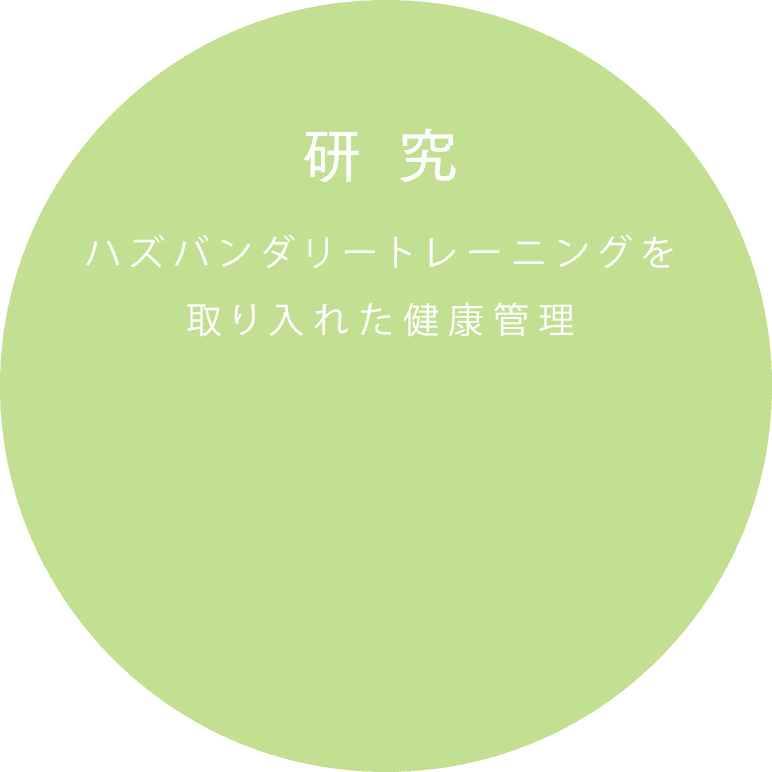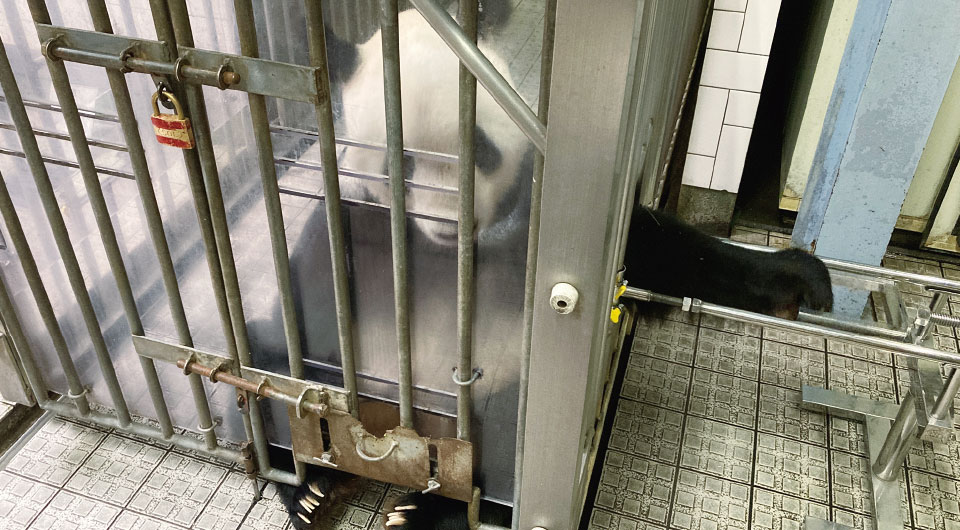

Husbandry training has been used since
In the past, general anesthesia was used to perform tests on giant pandas (blood tests, x-rays, etc.). However, anesthesia-based examinations were difficult to perform frequently due to the physical burden and mental stress involved. In 2008, Adventure World introduced Husbandry Training for the purpose of health management and early detection of diseases with less burden on animals, and in January 2009, the first blood sample was successfully collected at "Eimei". Currently, the training has been applied in many fields, including health management such as blood collection, urine collection, blood pressure measurement, radiography, and oral cavity check; treatment such as laser therapy and eye drops; and vulvar examination and breeding.
-
What is Husbandry Training?
-
Husbandry training is "Receiving Motion Training" and is training for medical treatment and care with cooperation on the part of the animal.
-
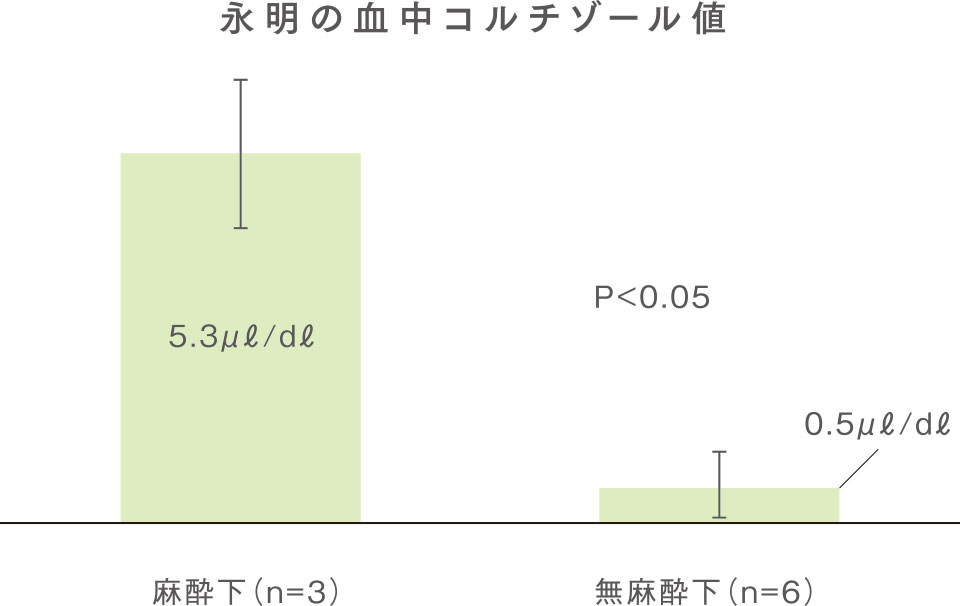
-
Comparison of stress levels by blood collection method
The blood stress hormone (cortisol) measured in "Eimei" under anesthesia and without anesthesia was significantly lower (0.5 μℓ/dℓ) under anesthesia compared to an average of 5.3 μℓ/dℓ under anesthesia, suggesting that the stress of blood collection without anesthesia (training) is lower.
List of items to be implemented
| Item | Objective |
|---|---|
| blood collection | (Health) Hematology, general biochemistry (Reproduction) Hormone testing |
| fresh urine collection | (Health) Urine characterization (Reproduction) Hormone test, vaginal mucosa exfoliation cell test, sperm confirmation |
| opening | (Health) Oral examination (wear, gingivitis, etc.) |
| X-ray (photography) | (Health) Chest, abdominal, and skeletal examination |
| Genital Observation |
(Breeding) Males: testicle size and hardness measurements (Breeding) Females: measurement of pubic size and coloration |
| Treatment-related | (Health) Eye drops, examination of corneal damage and pupil, laser treatment |
Blood sampling
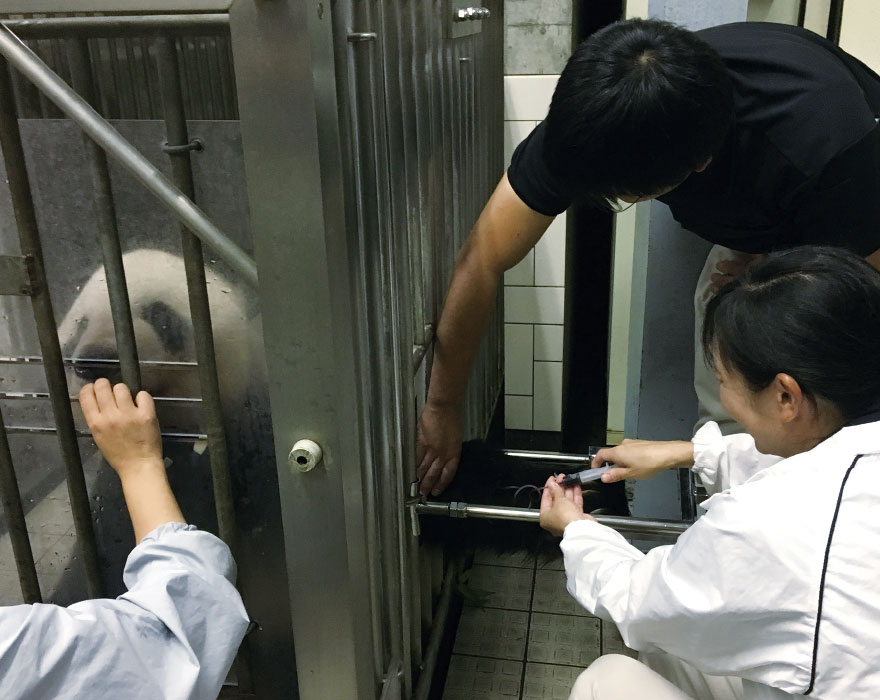
-
(1) Move to the cage for blood collection
(2) Sit in position to collect blood
(3) Hold out your hand and grasp the bar
(4) Hold the bar and turn your hand palm up
(5) Exsanguinate blood at the elbow (to make it easier to see blood vessels)
⑥ Blood collection
Other health care
-
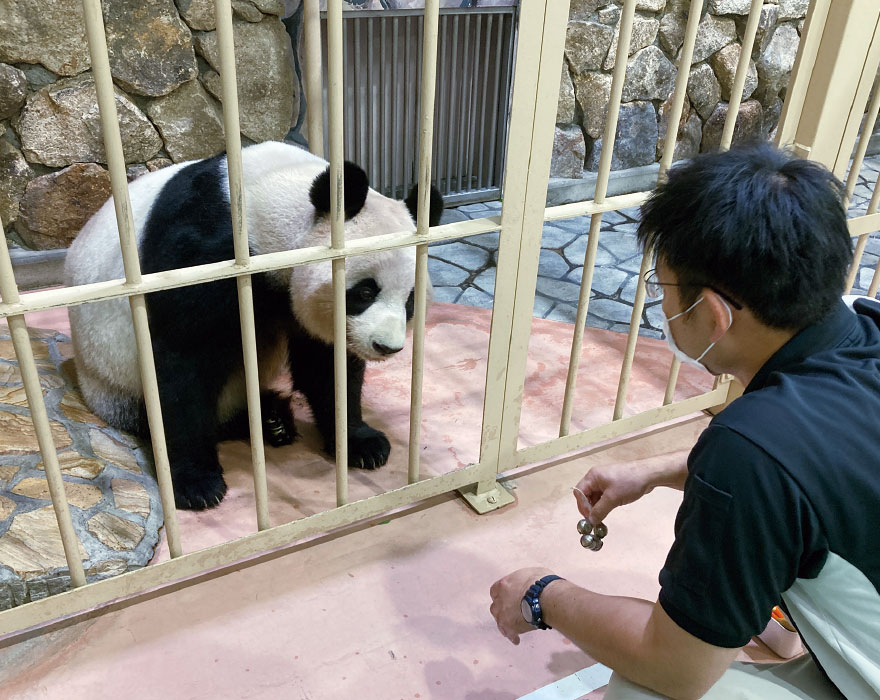
urine sampling
-
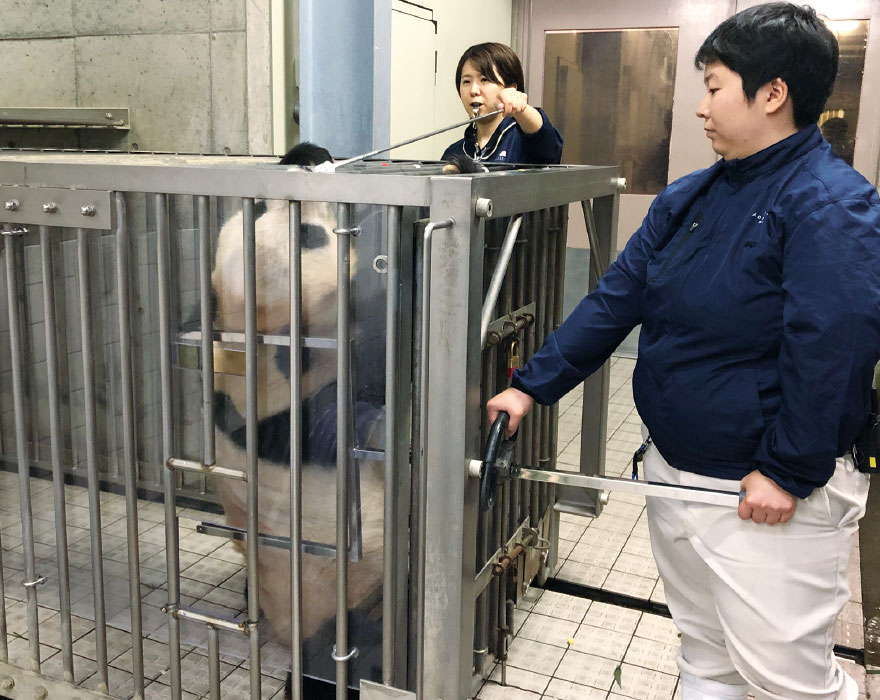
X-ray (photography)
-
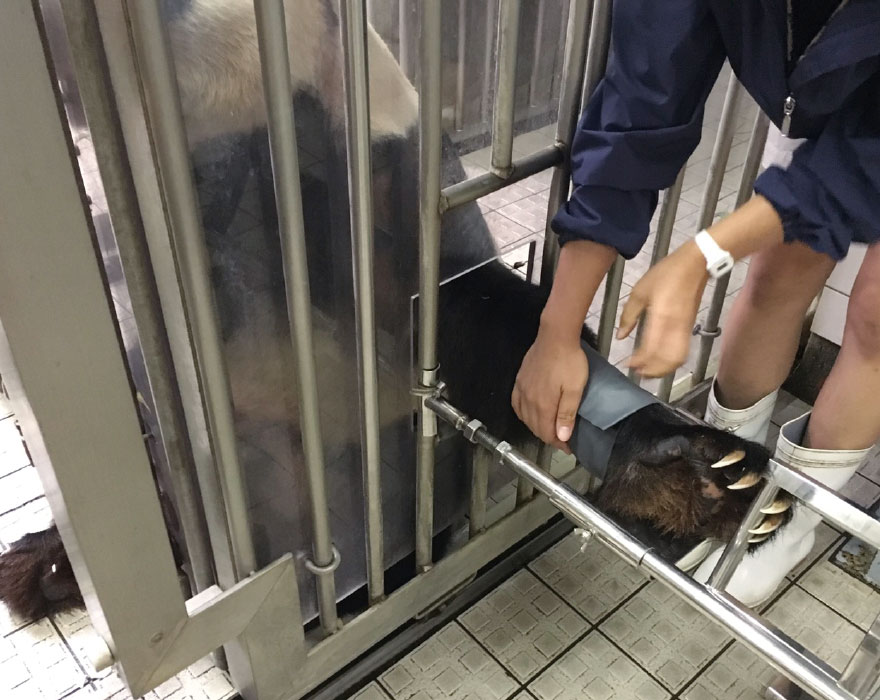
Blood pressure measurement
-
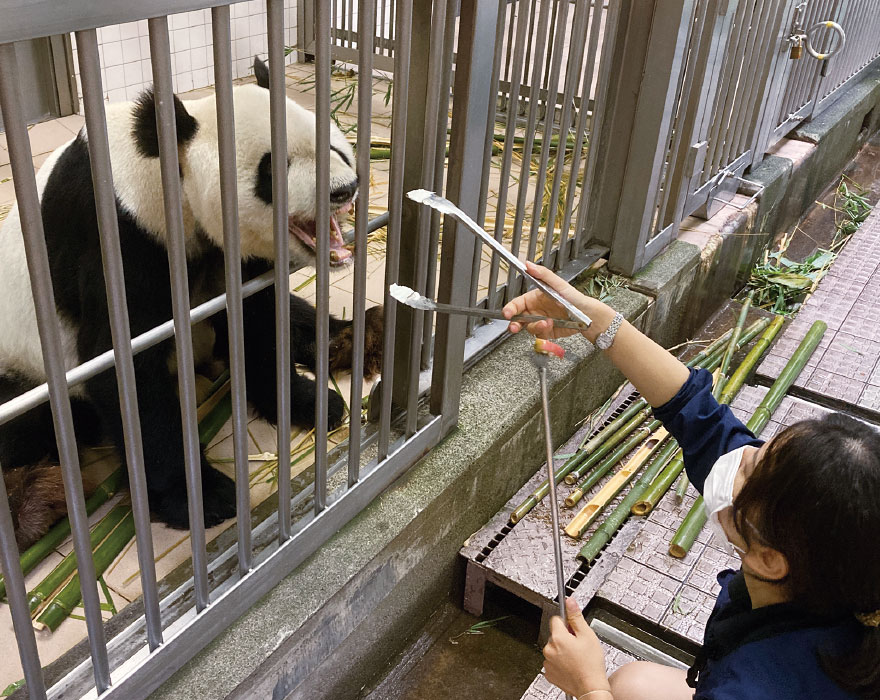
Intraoral Observation
